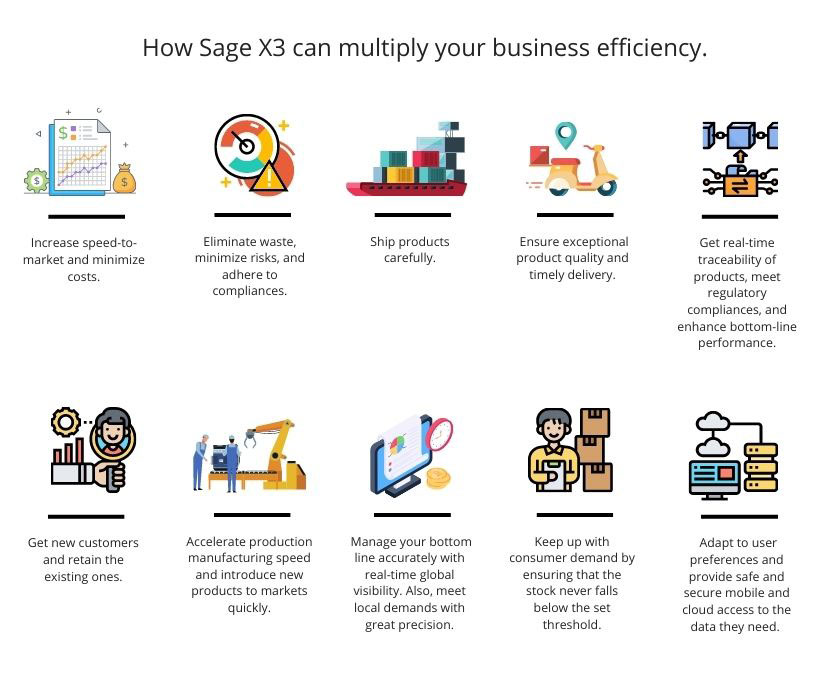Technology has helped businesses to boost productivity and gear their growth. Business Intelligence is one of the prominent technology changing the way businesses are operated. By 2023, 33% of large-scale companies will practice making decisions driven by business intelligence.
What is Business Intelligence?
Business intelligence is a buzz in the market. Its usage was widespread only in the 1990s. Earlier, business intelligence was introduced to make decisions for the company by gathering all the data and insights. Business intelligence has evolved over the years. Now we have a fully automated technology capable of delivering insightful value-added data, helping businesses make the right decisions for the future.
Business intelligence takes advantage of the software and services to transform data into actionable insights that help an organisation to make strategic and tactical business decisions.
Business intelligence examines large amounts of data and presents its analytical findings in the form of graphs, charts, reports, summaries, dashboards, and maps. These valuable insights inform the organisational decision-makers about the company’s current state.
BI refers to a range of tools that analyses the available data and offers quick, uncomplicated insights on the existing condition of the company.
Also read: The Future Of Pharmaceutical Manufacturing
Examples of Business Intelligence
Reporting is the most vital aspect of business intelligence. The dashboard is a type of BI tool that pulls data from different sources and presents it in the form of graphs and charts that give the present condition of the company.
It is an entirely wrong concept if you assume BI tells what to do or what will happen after taking a specific course. BI is not all about generating reports. There is more to this concept. Decision-makers have to analyse data to understand the company’s current trend and derive valuable insights to improve the company’s state.
Suppose a company wants to improve the supply chain operations, so the decision-makers have to depend on the BI capabilities. They need to find out why delays are happening, and there are variabilities in the shipping process. BI can get data on what products are delayed and which mode of transportation is slow.
BI tools are applied in various fields. The reports can benefit businesses by improving sales and cutting operational costs. In schools, it is used to analyse numerous data points- from attendance rates to students’ performance. This data can then be used to improve student learning and high school graduate rates.
Business Intelligence Methods
BI is a blanket term covering the processes like collecting, storing and analysing data from various business operations or activities to optimize performance. These capabilities help an organisation’s decision-makers make insightful and actionable decisions. BI has evolved over the years to support business processes to perform better. These processes include-
Data mining: Making use of databases, statics and machine learning to expose the trends in large data sets.
Reporting: Sharing the analysed data with stakeholders so that they can draw conclusions and make informed decisions.
Performance metrics and benchmarking: Comparison of current performing data to historical data to track performance. This feature can be found in the dashboards that can be customised.
Descriptive analytics: Analysing the preliminary data to know what happened.
Querying: BI has the ability to pull answers when it is asked data-specific questions.
Statistical analysis: Analyse how this trend happened and why by using the results of descriptive analytics.
Data visualization: Data analysis is transformed into a visual presentation in the form of charts, graphs, and histograms to consume more data.
Visual analysis: Analysing data through visual storytelling to communicate insights and stay in the examining flow.
Data preparation: Gathering data from multiple sources, identifying dimensions and measurements, and preparing it for data analytics.
Difference between Traditional BI and Modern BI
Historically, BI was used for regular reporting and getting answers to static queries. In the earlier stage, BI tools are predicated on the traditional business intelligence model. This was the top-notch model used at that time. It did not answer all the queries in the statics. The queries were added to the bottom of the reporting queue if someone had a follow-up question. After adding the question, they had to start the entire process again. This process needed to be faster, and leveraging insights from current data was challenging.
Traditional BI is driven by IT personnel.
Modern BI technology is interactive and approachable. IT departments are a significant part of managing data for modern BI. Still, multiple levels of users can customize dashboards and create reports rapidly. Users can visualise data and answer their queries if the company possesses proper software.
Also read: Why use business intelligence software in 2022?
Benefits of Business Intelligence
In a company, BI is an advantage to asking and answering queries about their data. Business Intelligence helps to keep a real-time view of all your relevant business data. Some of the top and significant benefits of BI are-
- Clarity of data.
- Boosts efficiency.
- Happy and content customers.
- Good customer support.
Pharma Manufacturing
Pharma manufacturing is a crucial part of healthcare systems worldwide. It is built on public and private firms that invent, develop, manufacture and market medicines. It is based on the industry that is entirely based on scientific research and the creation of drugs that prevents or treats diseases or disorders.
The emergence of innovative technologies is changing the way drugs are created. Nowadays, with the advent of innovative pharmaceuticals, drugs are developed with improved therapeutic activity and fewer side effects. Molecular biologists, medicinal chemists and pharmacists work together to create safe drugs.
Drug manufacturing is an extensive process created by pharma manufacturing companies. Some of the drug manufacturing processes are milling, granulation, coating and tablet pressing.
Confronting challenges with business intelligence in the Pharma Industry
The Pharma industry is a widespread market with many competitors racing to stay on top. The pharmaceutical market keeps changing, so companies should stay updated with the latest trends to stay at the forefront. With the inclusion of BI in the ERP system, companies can find solutions to overcome any challenges.
Sales and marketing challenges
Introducing a new pharma product is challenging. If there is no innovation in the product, then the money you invested in research and development, marketing and manpower is useless. With BI, it is easy to understand customer buying patterns, seasonal demands, slow-selling drugs and many more factors. BI gives you an insightful market forecast for the marketing and sales team.
Challenges in clinical data
Clinical data is enormous. There are huge details about hospital health records, disease registries, patient surveys, and many more records. It is a big challenge to draw insights from this extensive data. BI is the solution to draw valuable insights from this enormous data. It also monitors clinical trials and tests. These records make it easier to find the seasonal demand, which also helps maintain cost-effective production.
Operational challenges
The world population is more. Due to that global pharmaceutical market is getting broader. Consumers expect high-quality products for a lesser price. So the pharmaceutical industry should aim for the same. Business intelligence technology enables to achieve effective allocation of resources, enhances organisational growth and reduces costs by boosting research processes and clinical performance.
Demand forecasting
Demand forecasting is essential in the pharma industry. Manufacturing and delivering drugs on time helps you to stay on top. Companies that have business intelligence technology can get a reliable market forecast by examining customer data, pricing data and available inventory data.
Risk management
Risk management is a crucial part of the pharmaceutical industry. Companies must deliver drugs to customers without compromising on the quality, as it will have serious health hazards later. BI monitors all the business processes, so it will be easier to detect and rectify all risks in the earlier stage. Plus, you can easily increase the market value of the products.
Benefits of BI in the Pharmaceutical Industry
Pharmaceutical production is a significant process. BI is a massive boon for the pharmaceutical industry. Some of the benefits of BI are enumerated below.
BI help the marketing and sales team to analyse market demand. It also helps in examining the seasonal demand for the product. It also allows the sales team to perform better in terms of sales productivity.
BI efficiently monitors R&D processes, side effects and drug contraindications to identify risks. It helps in delivering quality drugs to consumers.
Optimising operations within your organisation to boost revenue, minimise operational costs, and promote brand awareness is easy.
Companies leverage BI technology to understand consumer buying demand and market trends and gain a business advantage over their competitors.
Managing inventory is critical in the company. BI helps with excellent managing of the inventory, giving insights into when the stock lowers or when there is an overflowing stock.
Significantly, BI helps analyse the pricing structure, investigate shifting customer interests and take valuable decisions for the company’s growth.
Conclusion
Business Intelligence is a technology that will help a company stand out and excel. Its benefits are many, touching every operation of the business. Large-scale industries have integrated this technology with their ERP software to leverage data and stay competitive in the market.
Sage X3
Sage X3 is an intelligent business management solution to manage the business’s day-to-day activities. This software has helped multiple companies to achieve growth and success rapidly. It is a modern solution to monitor and control business processes. It is customizable and can suit any industry’s requirements. It offers the best tools and features to help businesses perform their functions efficiently. Plus, it can be extensive and embraces other technologies. Implement Sage X3 and achieve growth rapidly.
Sage Software Solutions is a leading IT company with an array of advanced ERP Software solutions. Our proprietary products — Sage X3 and Sage 300, will help you cut operational expenses, improve business productivity, increase operational efficiency, forge robust customer relationships, and strengthen associations with vendors, suppliers, and distributors. So, if you are looking to reinforce your business fundamentals and emerge as an industry leader, then please schedule a call with one of our sales representatives.






